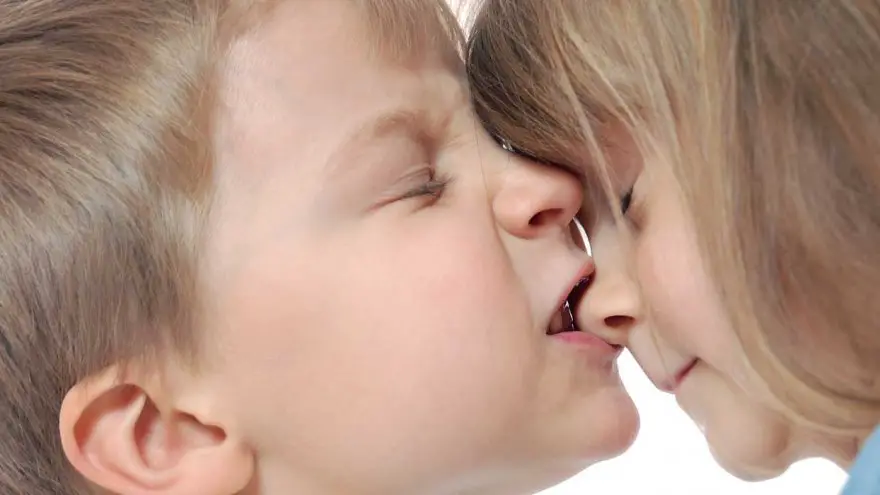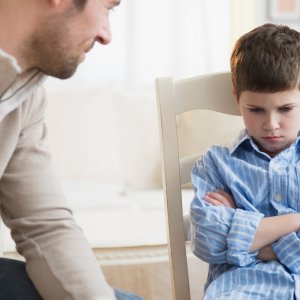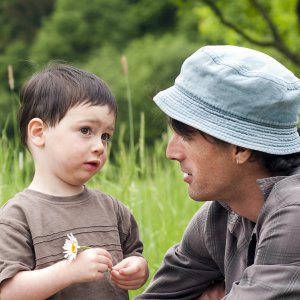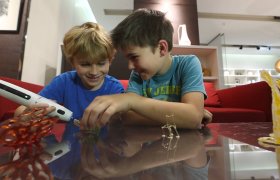What to do and what not to do When Kids Bite

Children bite, it is a common behavior with toddlers and some older children. Younger children may do it for several of the following reasons: teething, exploration, frustration, anger, happiness, joy, or excitement because they are too young to be able to express such strong emotions with words that they haven’t learned yet. Older children may do it for some of the same reasons. The first step that parents should take is understanding why it could happen. As a part of childhood development biting or other aggressive is an issue that some parents face, frequently. How it is handled is the key to successfully stopping the aggression.
Knowing what not to do in such a situation whether your child did the biting or another child bit your child, can prove to be the most valuable tool a parent can have. Here are several options to avoid when such a situation arises, this way you can be prepared for what could happen and know what to do instead.
Avoid Harsh Punishment
A parent’s first instinct if their child does the biting is to jump up and start yelling at their child. Chances are this will not work and could cause the problem to escalate when he or she has such strong emotions again. There are much better ways to handle the situation, and they involve explaining to your child in a firm voice how biting is bad behavior and should not occur again.
Avoid Labeling

Oftentimes, parents have heard their child called a ‘biter’ or they have referred to another child as a ‘biter.’ These are labels that should not be used as they can cause the situation to worsen over time. Children may feel they need to live up to such a label in order to get their point across to the adults.
Labels are never a good idea when a child is developing mentally or physically. Avoid labeling at all cost. Remember, that just because a child may bite another, doesn’t necessarily mean they are a bad kid, help them to understand the consequences of such actions.
Avoid Biting Them Back
This may have worked in the old days, but it will not work now, and it could be considered child abuse. Do you really want to go down that road? The urge to bite your child to ‘show them how it feels,’ is a misdirected way of disciplining. Doing so, as well as other aggressive punishments may cause the opposite effect than what you were hoping for.
Instead, try to direct their attention elsewhere if you see that your child is about to bite someone. Removing them from the situation and giving them another task or object to focus their attention on can be helpful. Be sure to explain to them why they shouldn’t bite another person.
Avoid Violent Video Games or TV Shows
Younger children should not be exposed to the violent type of video games or TV shows. While the TV show may not actually be the violent type, heroes often use some sort of violence or fight to become the hero. When a child sees this, they think that doing so is a way to become the hero in their own lives. Violent video games should be avoided for young children and even more impressionable children as well.
Avoid Giving Extra Attention
Should there be a time when your child does express his or herself by biting another person or child, let them know in a matter-of-fact and firm tone that biting will not be tolerated, then turn your attention to the person who was bitten.

Besides the obvious reasons such as making sure the other person is okay and offering an apology, this also shows your child that biting will not get the attention they maybe thought it would. By giving your attention to the victim and showing empathy, your child can also learn about empathy and how to express it.
Avoid Making Excuses
A parent’s life is spent trying to protect their child no matter if they are two years old or 52 years old, parents want their child safe from harm. Should you be faced with a biting situation between your child and another, do not make excuses for the bad behavior.
Little Johnny did not make a mistake by biting Little Susie, it wasn’t an ‘accident.’ It was bad behavior, plain and simple. In everyday life, you don’t accidentally bite someone. Do not make excuses for it, ever.
Avoid Repeating the Situation
In order to avoid the same situation happening, do not allow the two children to play together right away. This may lead to another incident that could have been avoided. If the children want to play together, after all, speak with the other parent and see what resolutions exist that you can come up with together.
Avoid Personalizing Behavior
Immediately, many parents will blame themselves for their child’s misbehavior, thinking that they are bad parents. This is just not true, most of the time. Do not personalize the behavior, instead, seek a solution to it so that it does not happen again. Speak with your children and spouse, and offer up alternatives to such aggressive situations. Many children go through the same phase as they develop, you are not alone in it.
Avoid Hot Sauce
Apparently, just like washing your child’s mouth out with soap when they cuss, hot sauce was once used to stop a child from biting another. Do not pour hot sauce in a child’s mouth to stop them from biting, nothing good can come of it.
Avoid Panicking
Probably one of the most important steps to take is not to panic when you see or hear of a child biting yours or your child biting another. If there is broken skin, be sure to apply first aid and contact your physician for any medical concerns.
It would be a good idea, no matter how awkward the conversation becomes, to ask the parent of the other child if there are any medical concerns that you should be concerned about with their child.
The same goes for it your child is the one that did the biting, let the other parent know of any underlying medical concerns that they should have such as hepatitis, herpes, and others oral diseases.
With the use of these tips for biting or bad behavior, your child can learn from you why it’s wrong to show their emotions this way. Keep in mind that children act out by biting it for several reasons: Frustration, anger, teething, happiness, joy, excitement, or other strong emotions they have not learned to express in more positive ways.
Many times they will also do it to explore their world. This is one of the reasons that young children may put everything in their mouth, they are exploring and trying to learn about the world around them.
By using positive parenting in such situations, repeat problems can be eliminated. Children look to their parents for guidance and by teaching them the proper way to express themselves emotionally, they can grow to be a well-rounded individual. Keep in mind that not all children go through the biting phase, but by learning these tips, parents can be prepared just in case.






